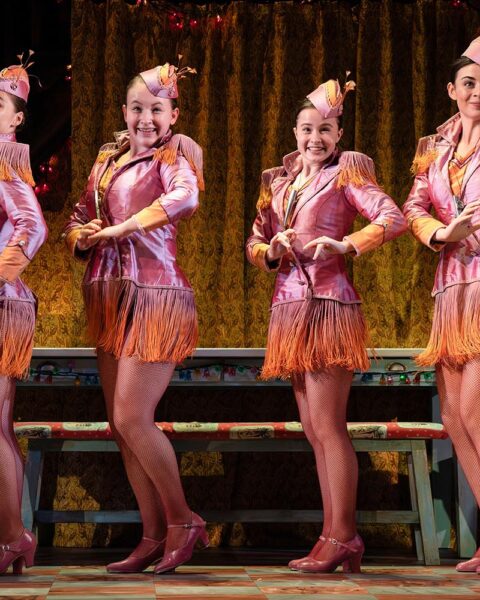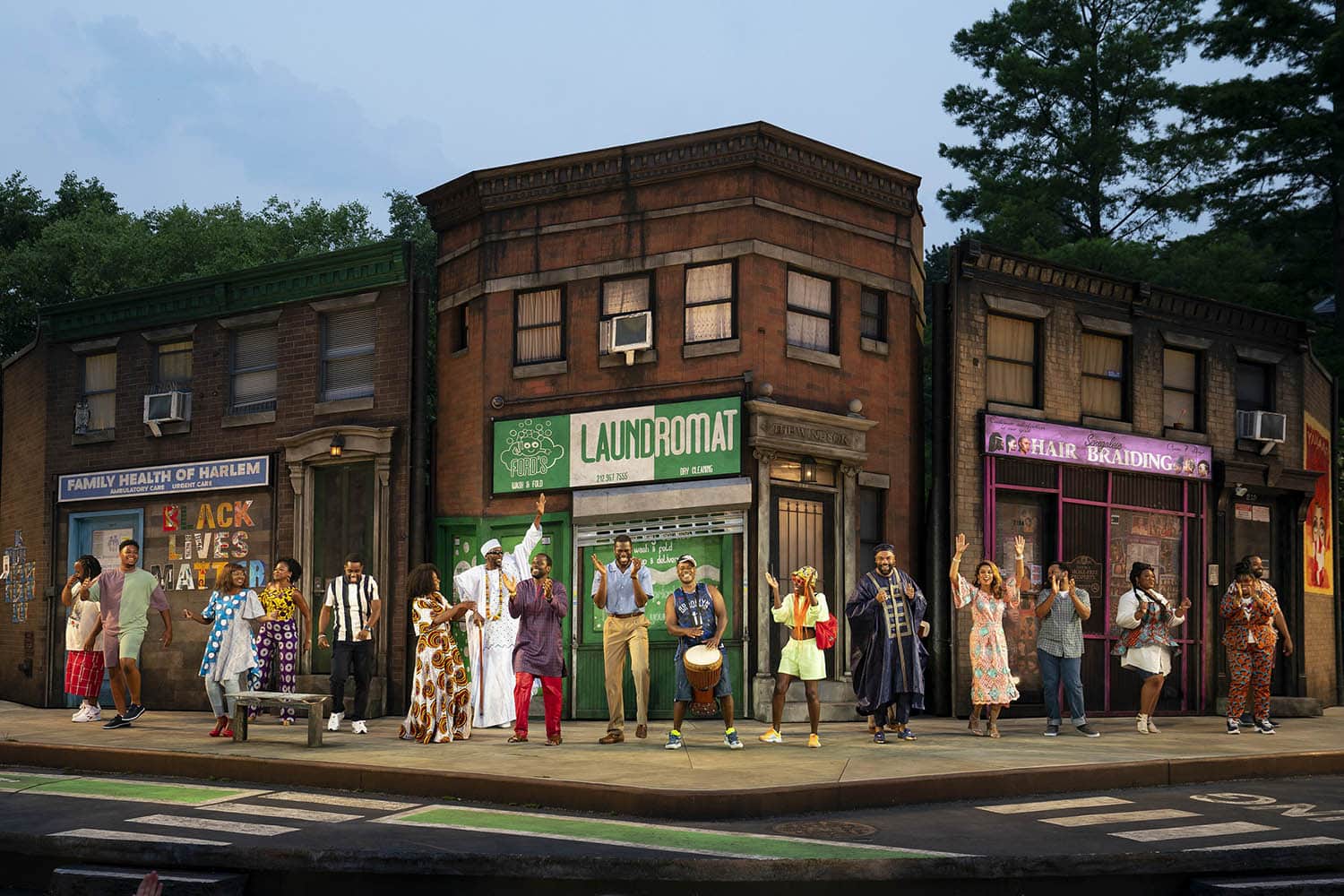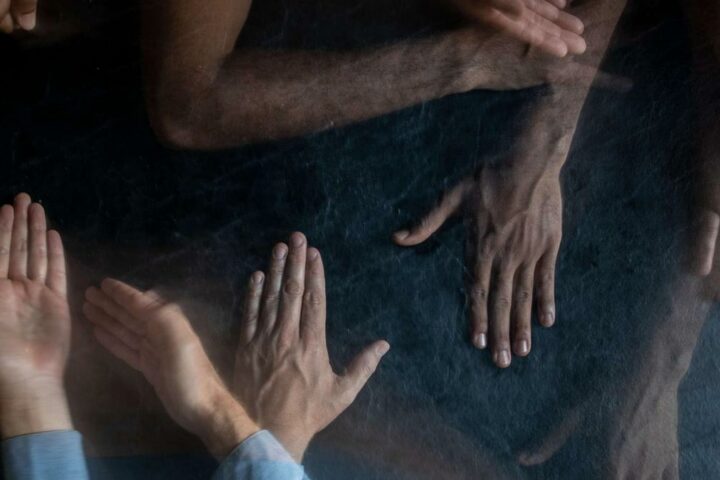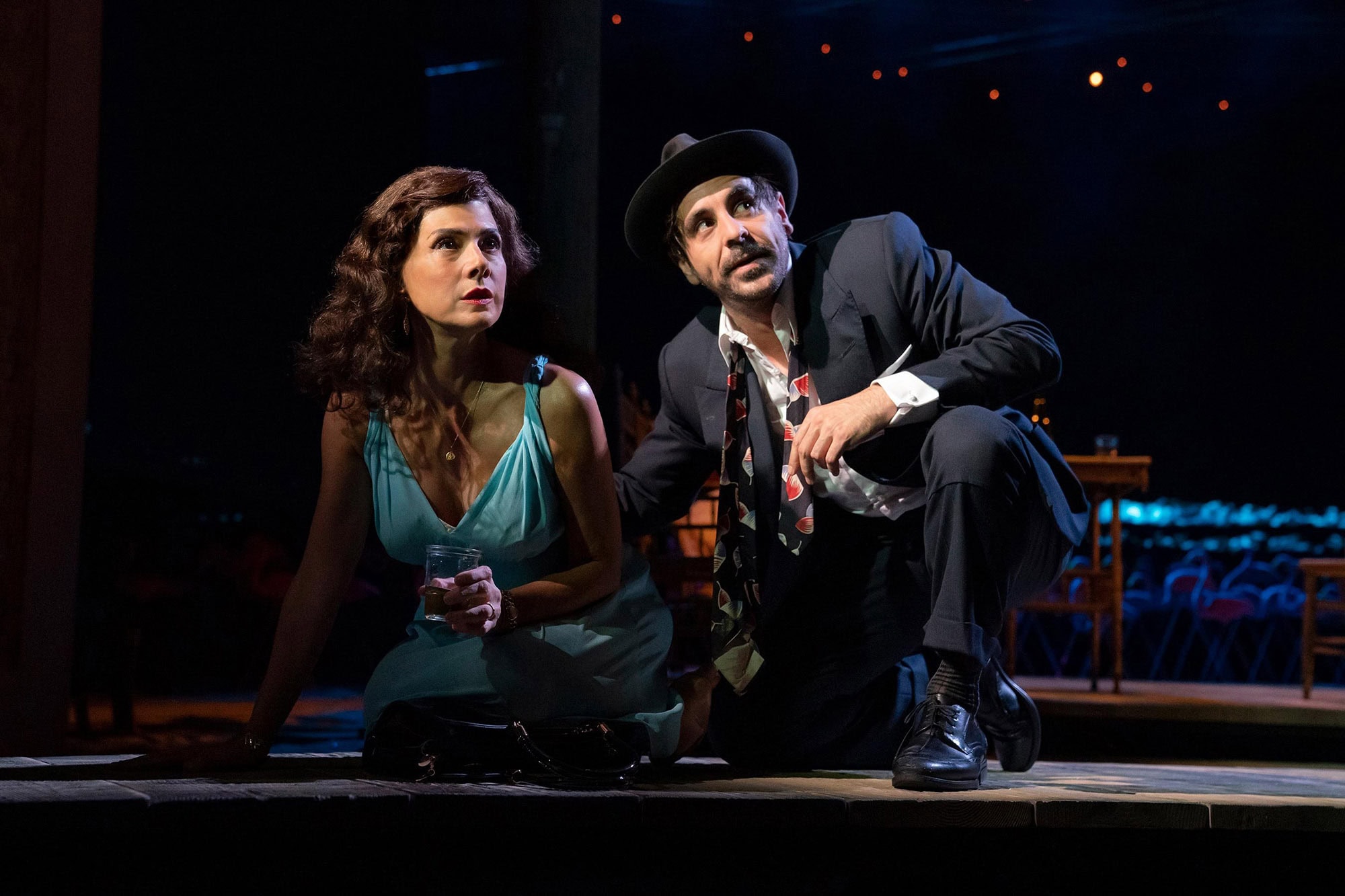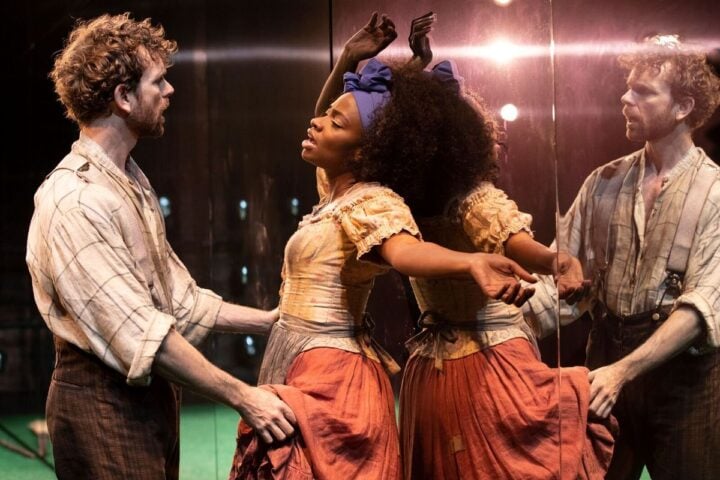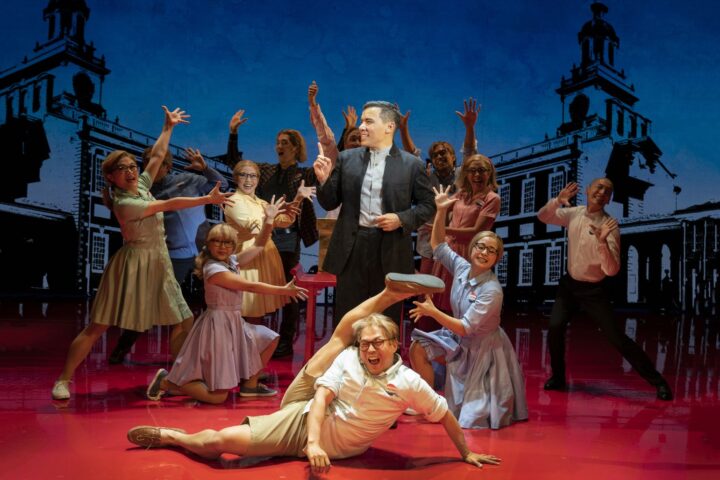Is this the underwhelming Kit Kat Club all over again? Well, yes and no.
If the play’s first half shows America as distilled dystopia, that focus only sharpens after an ambitious structural shift.
Merry Wives distills what legacy we need most from Shakespeare now and what art we need most from each other.
The Public Theater’s associate artistic director discusses the genesis of his ebullient production of Shakespeare’s play.
Fruma-Sarah’s slim premise isn’t quite sturdy enough to allow its more substantial aspirations to take flight.
Enemy of the People could do more to challenge the assumption that majority votes work the way they’re supposed to.
The phantoms of 2020 resurface with shivery impact throughout.
The festival is now part-streaming and part-live on a variety of platforms.
With this version of West Side Story, van Hove seems barely interested in the show itself.
It’s hard to think of too many other productions that strive to stretch a Shakespeare play so far beyond its natural course.
Busch discusses his latest comic tearjerker, an homage to a rather unknown spate of movies from the early 1930s.
The singular nature of this play, brought to life by Kathryn Hunter’s exceptional lead performance, is reason enough to see this production.
Experiencing the festival replaces the usual sense of familiarity with a sense of wonder.
This was the year of playwrights saying what they mean.
The Inheritance’s attempt to speak for everyone muddies its ability to speak clearly to anyone.
In the wake of Slave Play, immediate answers might sound neither comforting nor honest.
Two twists on the typical range of possibilities for the musical theater writing process are playing out in two recent musicals.
On an almost bare stage, the scenes bleed into each other with little sense that the setting or situation has changed.
It’s telling that the show gets its biggest laughs only after it’s turned deadly serious.
Letts trips over the line between objectifying women and satirizing the objectification of women.
As the stakes grow increasingly life or death, the production’s campy structure becomes less capable of supporting it.




